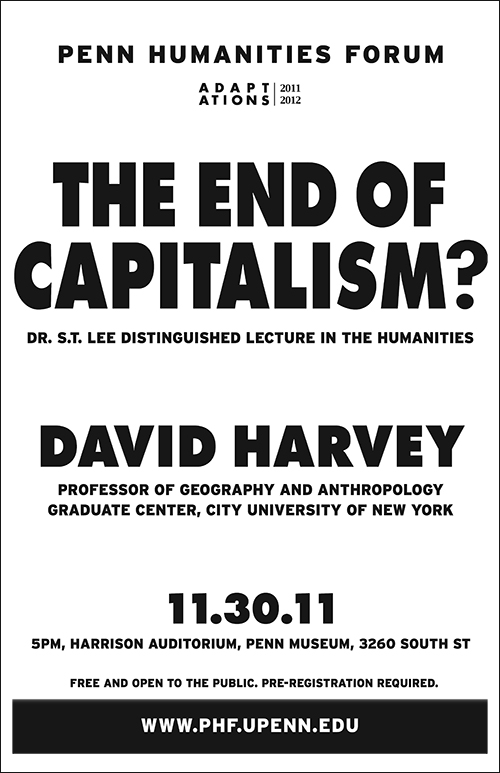Three years after the near collapse of global financial markets, America is still struggling with unemployment, debt, and foreclosure, European governments are teetering on the brink of bankruptcy—and the world's billionaires are getting richer faster than ever before. The current situation is not sustainable. But what changes need to be made to overcome this mounting crisis of our world economic system? How radical an adaptation will be required? David Harvey, the brilliant theorist and scathing critic of postmodern society, looks at what the future holds for global capitalism.
David Harvey graduated from the University of Cambridge in 1961 with a PhD in geography. Widely influential, he is among the top 20 most cited authors in the humanities. He is also the world's most cited academic geographer and the author of many books and essays influential in the development of modern geography as a discipline. His work has contributed to broad social and political debate, and he is credited with helping to resurrect social class and Marxist methods as serious methodological tools in the critique of global capitalism, particularly its neoliberal form.
In his early books Social Justice and the City (1973) and The Limits to Capital (1982), Harvey brought geography together with political economy to offer a predominantly Marxist account of historical development. In The Condition of Postmodernity (1989), he refined this account by integrating a far more developed cultural analysis, producing a new and highly influential account of contemporary society. He argued that postmodernism is essentially the cultural expression of a transformation in the dominant form of organization of capitalism: no longer Fordist and state regulated, but highly flexible and mobile; no longer concentrated around the urban centers of industrialized nations, but spatially dispersed to suburban peripheries and underdeveloped countries. This Marxist theory of postmodernism put Harvey at odds with most other theorists, who emphasized its aesthetic and culturally autonomous dimensions.
Within the discipline of geography, Harvey's Marxist theory of postmodernism implied a turn away from abstract models of optimum spatial relationships and toward the question of the political, cultural, and economic determinants of uneven development. Due in large part to Harvey's influence, uneven development has become one of the major areas of geographical research and debate since the 1980s. His own contributions in this area include Urbanisation of Capital (1985), Justice, Nature and the Geography of Difference (1996), and Spaces and Global Capitalism: Towards a Theory of Uneven Geographical Development (2006).
Harvey has been teaching classes on Marx’s Capital for more than 40 years. His renowned video lectures are available free at davidharvey.org.
Professor of Geography and Anthropology
Graduate Center, City University of New York



